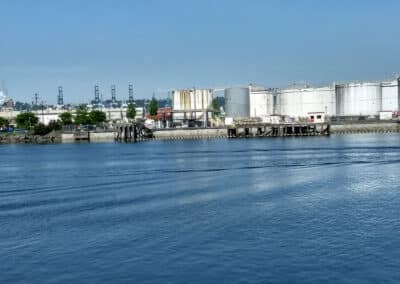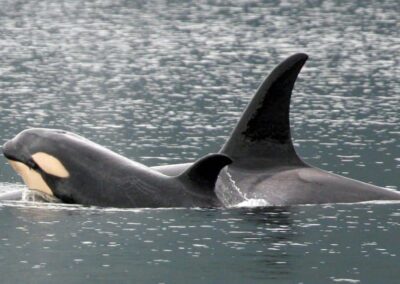Stopping Tacoma from Harming Puget Sound Chinook Salmon
Stopping Tacoma Wastewater Discharges from
Harming Puget Sound Chinook Salmon
NWEA has served the City of Tacoma with an intent to sue for discharging treated sewage containing so-called “contaminants of emerging concern,” a category of largely unregulated pollutants including pharmaceuticals, personal care products, pesticides and industrial chemicals that have been shown to cause decreased growth and reproductive problems in Puget Sound Chinook salmon.
In the notice, Northwest Environmental Advocates (NWEA) and the Center for Biological Diversity (CBD) cite numerous studies indicating that the contaminants discharged in Tacoma’s treated sewage are poisoning Puget Sound Chinook salmon. Based on those studies, the groups assert that Tacoma is causing illegal “take” of the protected Chinook in violation of the Endangered Species Act (ESA).
“Despite scientists’ years of having demonstrated harm to Puget Sound Chinook from Tacoma’s discharge of personal care products, synthetic hormones and industrial chemicals, EPA and the Department of Ecology have done absolutely nothing to prevent it,” said Nina Bell, executive director of NWEA. “We’re stepping up to stop Tacoma’s pollution because the regulatory agencies have long stepped away from doing their jobs.”
Studies conducted over the past decade show that Tacoma’s treated sewage reduces Chinook survival rates to nearly half that of juvenile fish moving through less contaminated Puget Sound estuaries. The studies identified a “dysfunction that appeared to mimic starvation” in Chinook exposed to the contaminants present in Tacoma’s treated sewage.
Puget Sound Chinook salmon are also a key food source for highly imperiled Southern Resident killer whales, known to be among the most contaminated marine mammals in the world.
“It’s our goal to make meaningful the hard work of scientists who are studying the effects of pollution on Puget Sound species,” said Bell. “These pollutants are called ‘emerging’ as if we just learned about the problems they cause yesterday when, in fact, EPA and the states have known about the hazards for a very long time.”
NWEA has petitioned the U.S. Environmental Protection Agency to regulate contaminants of emerging concern.
Paul Kampmeier and Brian Knutsen of Kampmeier & Knutsen PLLC represent Northwest Environmental Advocates and the Center for Biological Diversity in this case.

Court Wins for Puget Sound & Columbia River

Stopping Tacoma from Harming Puget Sound Chinook Salmon

